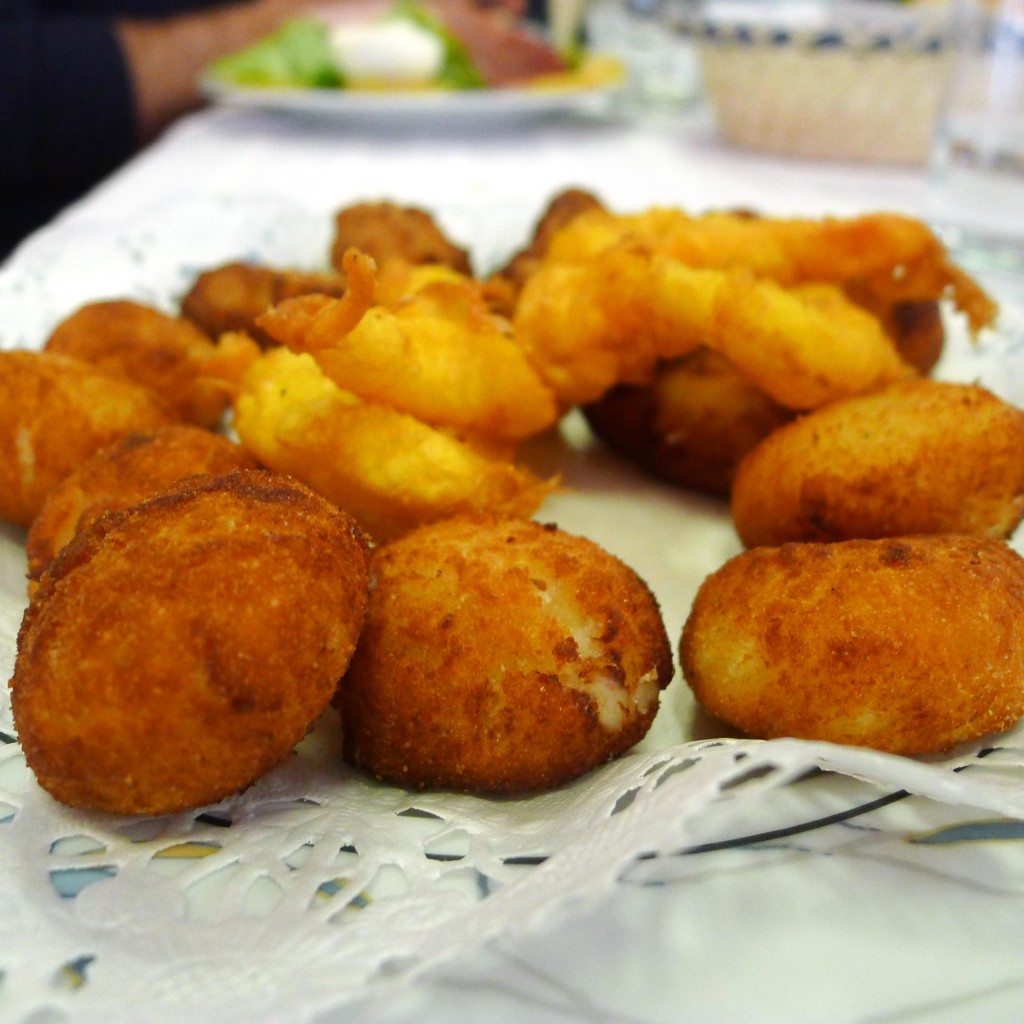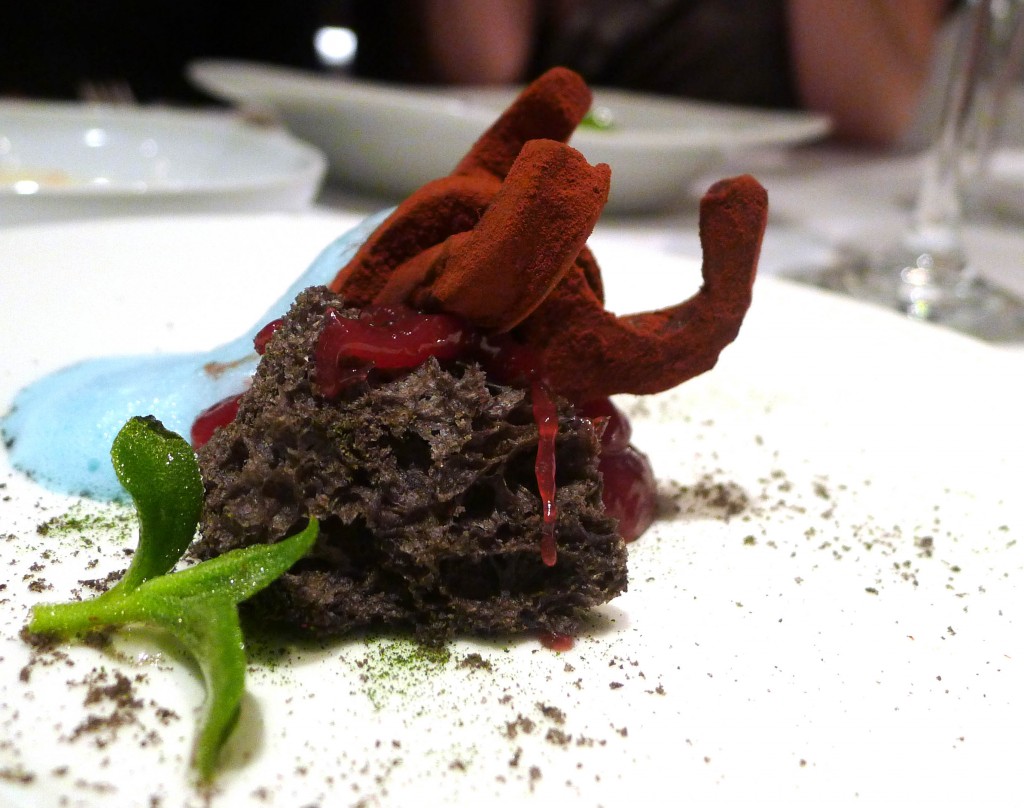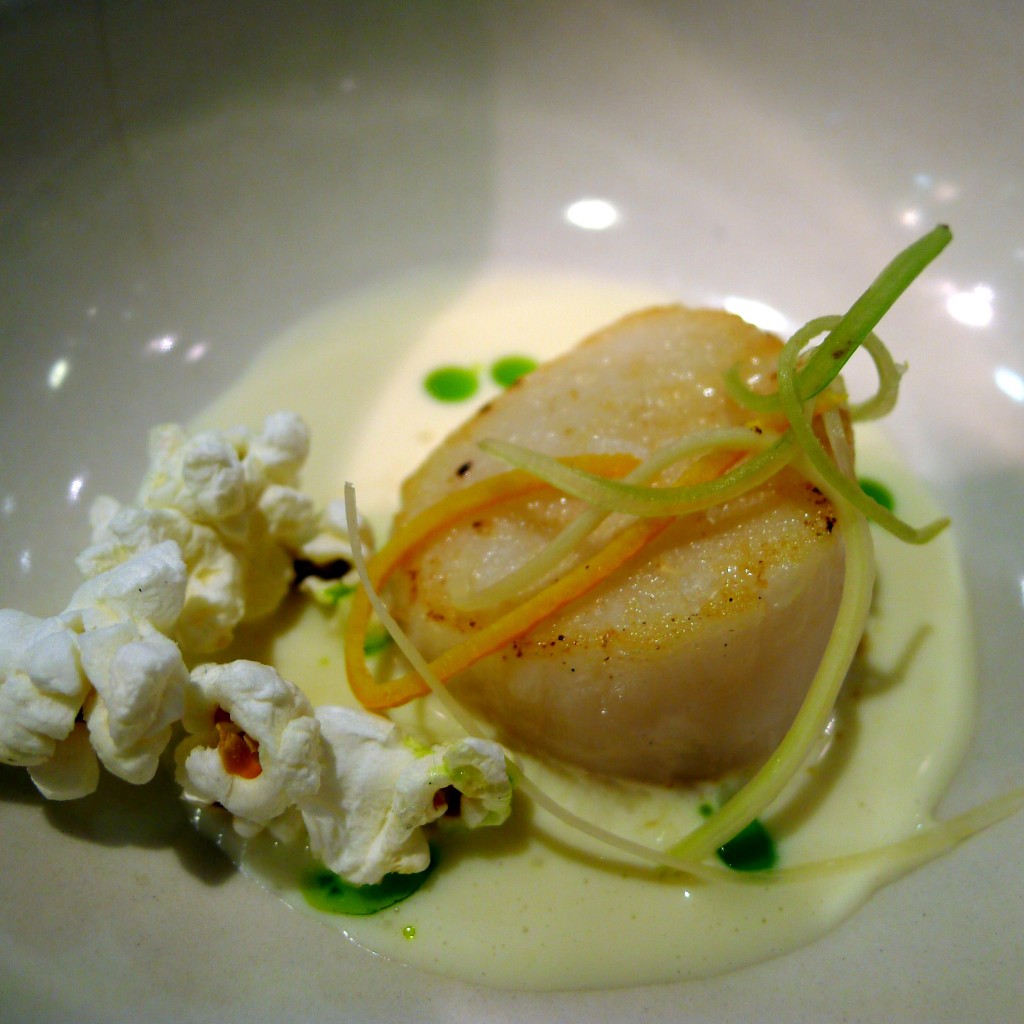Well, we are in the thick of San Sebastián’s first-ever restaurant week, and I have the fortune of being able to visit each restaurant to see what is occurring seasonally across a fairly broad spectrum of restaurants. Sixteen restaurants are participating, and they range from the almost-famous Narru to lesser-known restaurants deep in the interior of Gipuzkoa.
The goal is to display seasonality, provide value, and give customers a chance to visit new restaurants and old favorites at a bargain price of just 25 euros, which includes 3-5 courses, wine, and often coffee.
Today I am talking about two restaurants, both classics of the old part: La Muralla and La Cepa, and putting their best two plates in a faceoff.
La Cepa: Hake ‘a la koskera’, or in a sauce of peas, asparagus and clams.
This is a super dish; soft, tender hake served in a rich sauce that looks like spring.
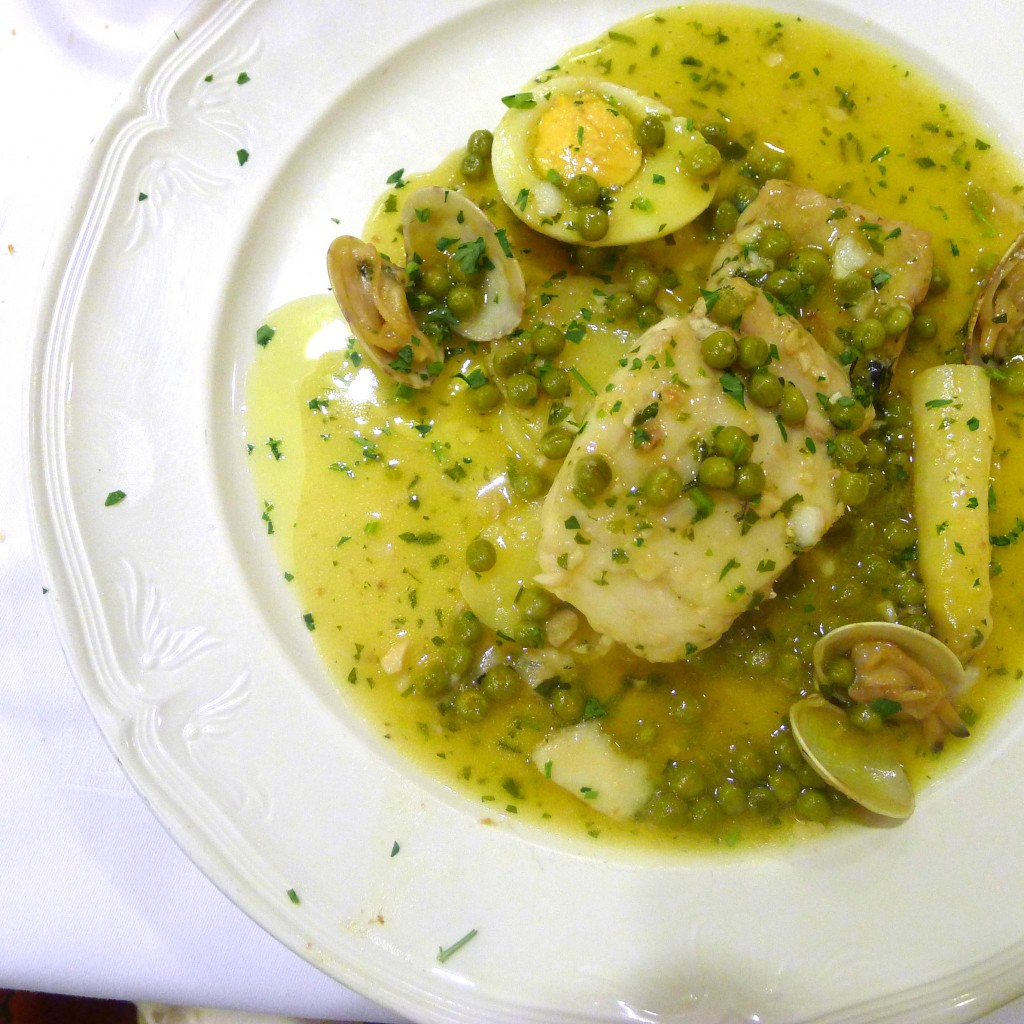
La Muralla: Lamb au jus with a light potato puree.
Tender lamb with a glaze that just begs to photographed, served over lighter than air potatoes and with a salad.
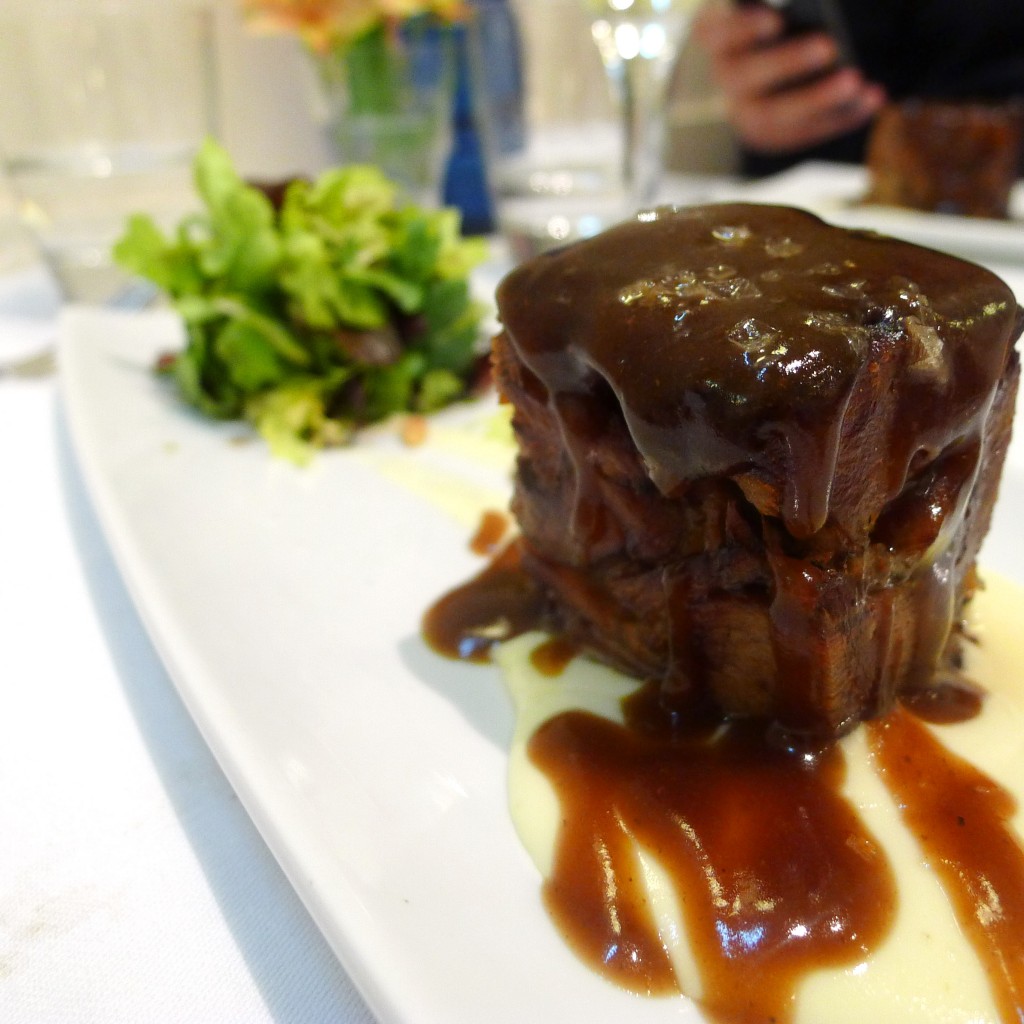
And the winner is: La Muralla. I liked the concept of the plate at La Cepa, but with the glory that is the peas right now in Basque Country I would have liked to see them a bit fresher. Asparagus, too. Meanwhile, the meat, oh the meat at La Muralla….so so tender, but not in a carrillera way. Perfectly balanced dish. Beautiful plating.
Round one over! Stay tuned.


